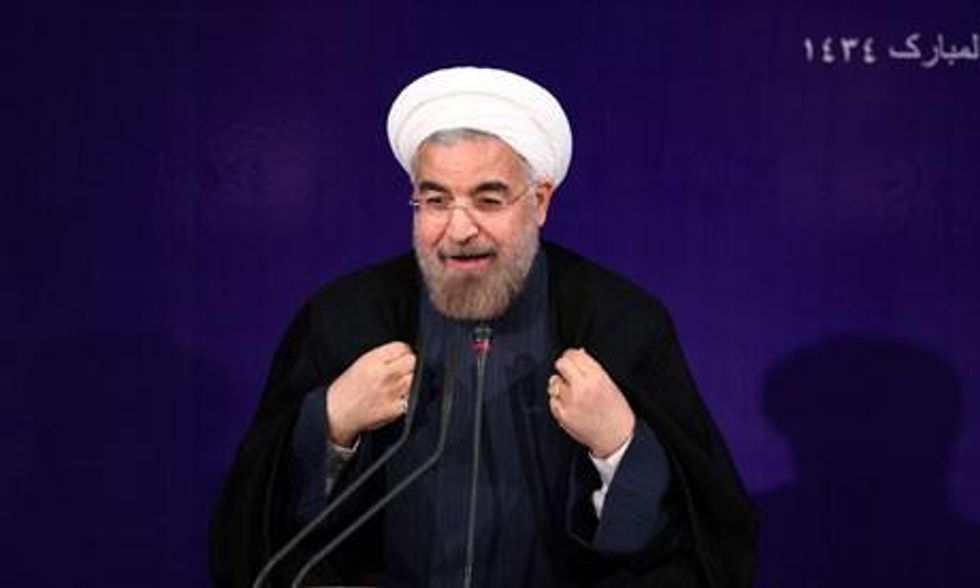While these signals are encouraging, there are reasons to be both optimistic and pessimistic. Before Hasan Rouhani's election as president this summer, the Iranian supreme leader, Ayatollah Ali Khamenei, had already given his blessing for the possibility of direct talks with US. That remains valid for the new administration. Zarif has recently recognised the Holocaust as a historical fact and condemned the killing of Jews by Nazis, as well as sending out a message of congratulations to the Jewish people for Rosh Hashanah.
Those familiar with Iran-US relations understand that with President Obama, the secretary of state, John Kerry, and secretary of defence, Chuck Hagel, in office in Washington, and Rouhani, Zarif and Ali Shamkhani, secretary of the supreme national security council of Iran, in Tehran, there is no better opportunity to bring an end to decades of hostilities between Washington and Tehran.
At the same time there is room for doubt. While Iran played a constructive role in convincing the Syrian president, Bashar al-Assad, to join the chemical weapons convention, Obama has nevertheless threatened it with military strikes. "They shouldn't draw a lesson that we haven't struck, to think we won't strike Iran," he said.
While Iran and the US both consider the use of chemical weapons a crime, Iran has been a victim of these weapons, while the US has deployed them and turned a blind eye to their use. Given this, it would be prudent for Obama, instead of threatening Iran, to apologise for the backing it gave to Saddam Hussein's use of chemical weapons against Iran during the war (1980-88) when 100,000 Iranians were killed or injured by them.
That said, Iran believes broader negotiations can achieve a deal - if the parties come to the table with good intentions. "Rouhani's election and his appointments to the nuclear diplomatic team have created a like-minded group that would facilitate the resolution of the dispute if the other side was willing to do so," Ali Akbar Salehi, a MIT PhD graduate and the Iranian atomic energy chief, said.
There remains a possible dealbreaker. Obama's understanding of how to approach Tehran can be encapsulated as follows: "My view is that if you have both a credible threat of force, combined with a rigorous diplomatic effort, that, in fact, you can strike a deal". Although the use of force and bullying is part of US foreign policy, the grand civilisation and culture of Iran has made the Iranian nation attach great importance to respect and honour, resisting any form of coercion and humiliation.
"You [the Americans] point the gun at Iran and say either negotiations or we pull the trigger! You should know that pressure and negotiations do not go together, and the [Iranian] nation will not be intimidated by such things ... If the Americans demonstrate, both in words and actions that they are not irrational, then they would find Iranians benevolent, rational, and ready to engage. This is the only way to engage Iran," said Khamenei in response to the US invitation for direct talks.
If the US does not correct this critical misunderstanding, there will be no deal, and we can look forward to conferences decades hence on "The Missed Opportunities of the Rouhani and Obama Years".


